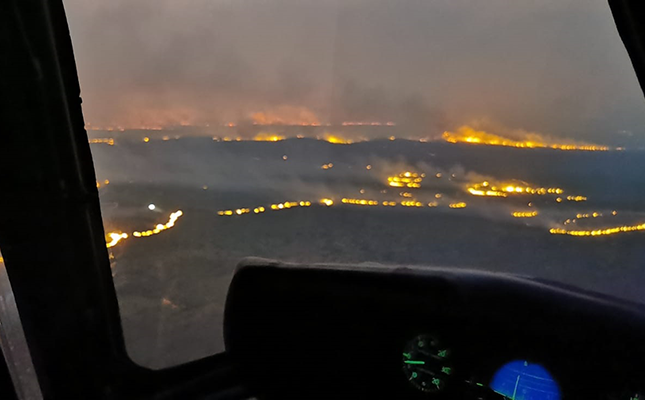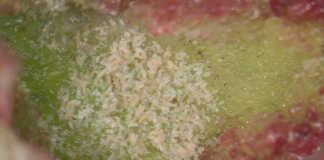
Photo: Dewald Dempers
This was according to Nicol Jansen, president of Agri Northern Cape, who said wildfires had been reported across a widespread area, including the Van Zylsrus, Danielskuil, Kuruman, Carnavon and Mier districts.
“We are still [in the process of] assessing the full extent of the damage [caused by the fires] that occurred in October, and will only be able to form an idea of the devastation [once] all the satellite images have been received.
READ 100 000ha already destroyed in wildfire underway in Namibia
“[However, to date,] reports of severe livestock and infrastructure losses have been received. We are particularly concerned about the large-scale loss of fences.
“Over and above the fences that were physically destroyed, the galvanising on the remaining wire was destroyed by the extreme heat, which means that virtually all the fences will have to be replaced,” he told Farmer’s Weekly.
Jansen said the affected farmers needed urgent support in terms of animal feed and the replacement of infrastructure.
The organisation had previously established the Agri Northern Cape Foundation to support farmers affected by disasters outside of their control.
He called on those who wanted to assist the victims of the wildfires to channel donations via the foundation, with contact details and other information available on the Agri Northern Cape website and Facebook page.
Although a smaller area than the 500 000ha lost in wildfires last year had to date been destroyed, the damage was still catastrophic for farmers across the province as it severely curtailed their capacity to continue with the production of food and fibre, Jansen said.
Without emergency funding, they would find it virtually impossible to survive financially.
Funds earmarked for disaster relief were used as effectively as possible to serve the agricultural community as a whole and support less fortunate communities, he stressed.
Jansen expressed serious concern about the fact that some of the wildfires, especially those in the Van Zylsrus and Askham areas, resulted from runaway fires that originated in Botswana and spread to the province via the Kgalagadi Transfrontier Park.
He also pointed out that the fire in the Mier area originated in Namibia. According to Jansen, these cross-border fires were not effectively managed in neighbouring countries, and were mostly left unattended.










